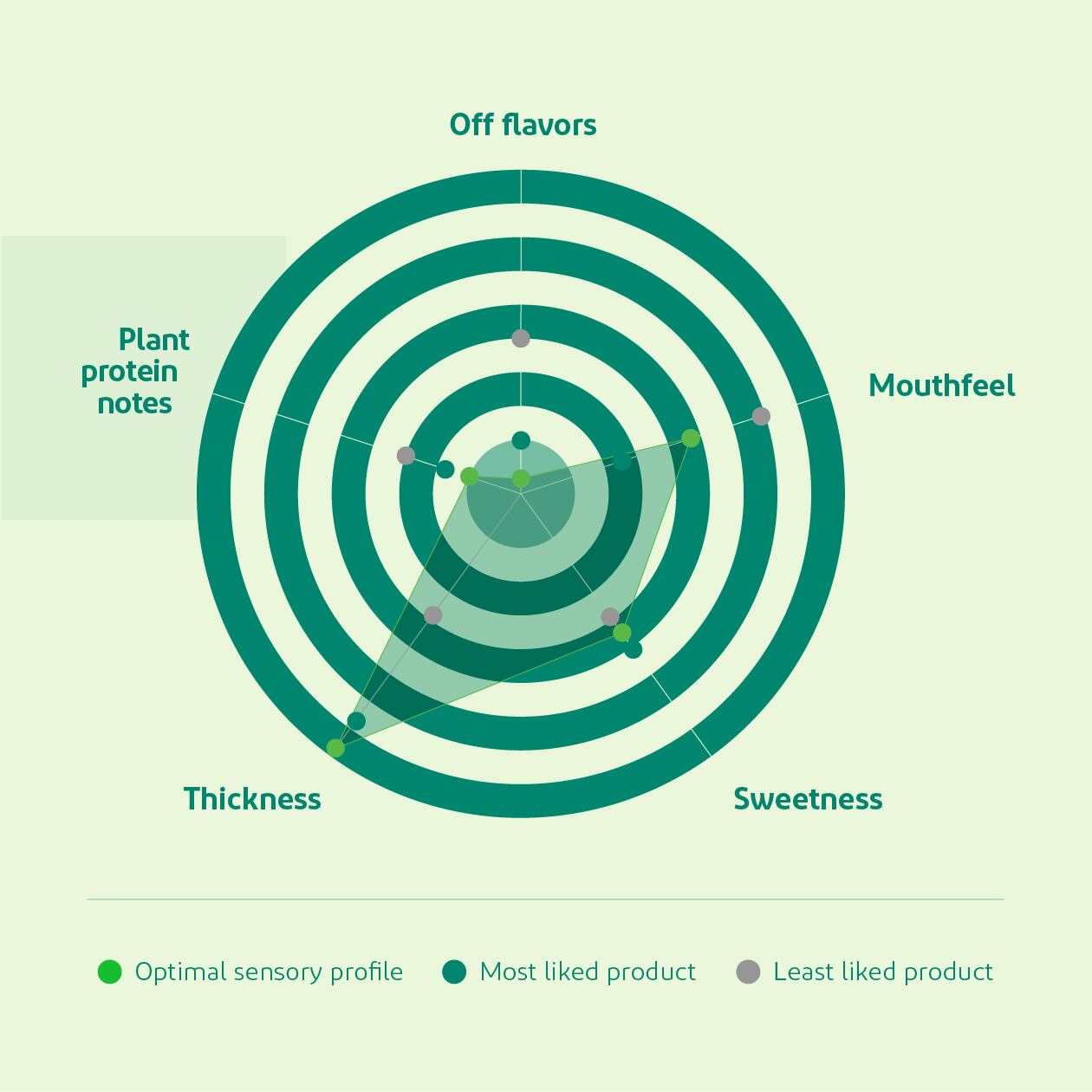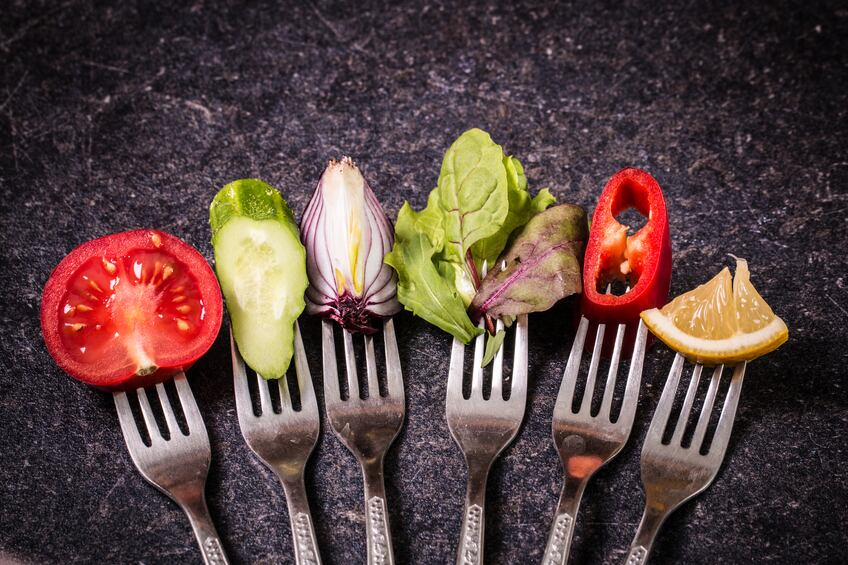The brutal reality of food and beverage innovation is that most product launches flop. This is especially true in the plant-based space: an area of greenfield development where it is a challenge to get consumers to love a product and see it stay on shelves.
Lately we have seen a tsunami of new plant-based protein beverages on the market. But proteins, dairy or plant-based, come with sensory challenges. Off-notes and poor texture are often a common problem. DuPont Nutrition & Biosciences has noted some novel proteins have varying quality and sensory attributes. Texture, viscosity and processability are all a huge challenge when aiming to ensure beverages meet consumer expectations, it says.
DuPont’s sensory science team in the US has therefore come up with what it believes is ground-breaking methodology designed to take out much of the risk in plant-based beverage R&D. DuPont proudly states the model – based on a combination of trained sensory and consumer panels -- can predict if a plant-based, protein-rich drink is likely to succeed, thus enabling producers to design products to be a hit with consumers.
The methodology is a break with traditional procedures for product development, claims DuPont, where sensory science is typically drawn in late in the process. Instead, it aims to use sensory science in the earliest design phase to determine formulation strategy and choice of protein.

Consumers don’t need as much sweetness as most brands think
The methodology has so far revealed, among other things, that consumers have less of a sweet tooth than most producers think – in fact, there is a level where too much sweetness does more harm than good.
People are also more tolerant than expected of bitter off-flavours from vitamins and minerals and increasingly like selected plant flavour notes, as long as there is no aftertaste. From a texture perspective, they prefer a smoother mouthfeel than commercial products currently provide and slightly more viscosity.
While this insight was learnt in the US, consumer preferences will differ from one region to the next. But the key sensory dimensions will stay the same, according to the company.
“As an ingredient company we are not only interested in the products that we make but we are also interested in the industry and what’s happening,” Kimberly Hogan, Group Manager - Sensory Science at DuPont Nutrition & Biosciences, told FoodNavigator.
“We look at the entire category as a whole to really get an understanding of what's happening and how consumers are responding to what’s in a category and is there anything that's open space that's currently not being utilised and how do our ingredients play a role in that. We really want to understand how we can play, influence and help an entire industry.”
According to Mindi McKibbin, Principal Scientist, Beverage Applications at DuPont Nutrition & Biosciences, the approach allows DuPont to "develop prototypes for our customers that we know will have good market acceptance or product liking scores. Doing that upfront really helps our customers to get to the market faster with a new product.
“If it’s one of the larger players in the plant protein market we can save them the initial step of development where their scope is really narrowed up front, but where we see a lot of success is in the smaller-to-medium sized players that maybe don't have as much R&D resources to devote to product development and that's where we can help our customers eliminate a lot of time and the expense of innovation.”
She added: “I really think this methodology helps us help our customers get to the market faster and with a product that may have better success in the marketplace than without the methodology."
Attractive white spaces for product innovation
Another interesting discovery from the methodology claims consumers are unconcerned at what type of protein is in their plant-based beverage. "It could be soy-based, or pea protein-based or another protein,” explained McKibbin. “The consumer wasn't so concerned about what type of plant-based protein it was as long as it was plant-based protein.”
Neither do they seem as concerned if their plant-based beverage requires fortification to be a complete source of protein. That’s in contrast to the traditional protein shake market geared towards exercise or muscle milk beverages. “A lot of plant-based proteins are not complete, or they don't have all of the essential amino acids so sometimes we see protein blended drinks [in which] the completeness of the protein drink is closer to dairy,” observed McKibbin.
“But the consumer doesn't really understand that or even really care as long as there is enough protein in the beverage. We usually see that as long as it has around 8-10g of protein, so something similar to dairy milk, then the traditional consumer is OK. For other market brands and more informed consumers, higher protein amounts and complete nutrition is still important. This question of protein completeness then goes into the development upfront based on the consumer demographic being targeted and the brand identity.”
Far more important to consumers is mouthfeel, she said. “They don't want to have a gritty texture. They don't want the beverage to be too thin or thick.” Instead, they crave “a creamy mouthfeel that's the right level of sweetness and a good to excellent source of protein”.
Ramifications for other sectors?
DuPont says the methodology can potentially be used across any platform, though for the moment its focus remains on plant-based beverages. “We're seeing a lot of growth in this industry right now,” said Hogan. “One of the most important things as we grow as an industry is to ensure that consumer expectations are being met and that they're not turned off after an initial experience.”
McKibbin added: "Our goal is to help grow an industry and help make sure that the products we're making, and that our customers are making, provide the ultimate consumer experience. The more often we can do this kind of testing the more often we can help set the category up for success.”
When will the beverage with the ideal sensory experience hit the market? “I think we'll start seeing more and more in the market as our customers begin to formulate with this type of methodology,” McKibbin said. “In the refrigerated space we'll start seeing things in early 2021. From a shelf staple perspective, closer to the end of next year.”





